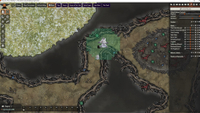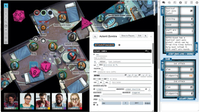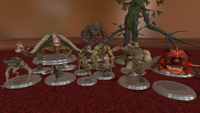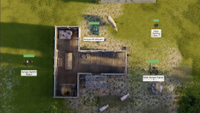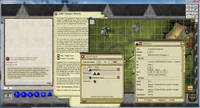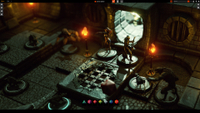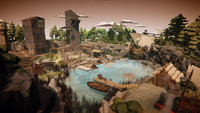Best virtual tabletop software in 2025: How to play D&D and more TTRPGs online
Here are the best virtual tabletop software apps you can use right now
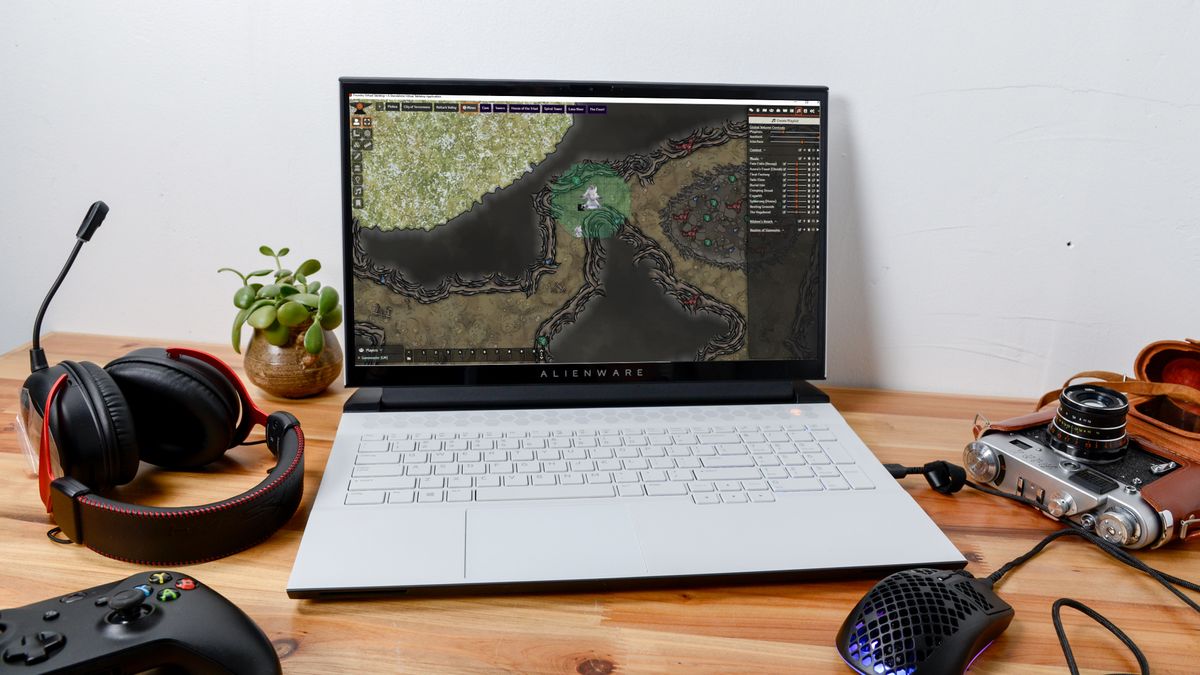
You don’t necessarily need the best virtual tabletop software to have a good time playing Dungeons & Dragons or any other tabletop role-playing game out there. But it certainly helps. As a game master, I know how important it is to know which virtual tabletop works best for your group and for the type of game you’re playing. I’ve bounced around between several of them, so I can help you decide which is the best virtual tabletop software to use for your needs.
If none of this is new to you, check out our larger DND Tips page for more advice on D&D 5e and other TTRPGs. You can also read about my romantic journey in Stray Gods or about my frustrations with Baldur's Gate 3.
While D&D has had a wild surge in popularity in the past decade thanks to shows like Critical Role, D&D is not the only TTRPG. There are plenty of popular and fun TTRPGs to play, like Call of Cthulhu, Shadowrun and Blades in the Dark. A few TTRPGs I’m currently eyeing are The Witcher Role-Playing Game and the Altered Carbon Role Playing Game (I’m still grieving, Netflix).
After you’ve picked which TTRPG to play with friends, you can determine which is the best virtual tabletop software for you. There are some fun virtual tabletops on the horizon like Menyr and RPG Stories.
What is the best virtual tabletop software?
Why you can trust Laptop Mag
There are quite a few great virtual tabletop programs out there, but finding the best one for your specific game is more important than simply using the most expensive one. My personal favorite is Foundry Virtual Tabletop due to its customizability and relatively affordable price. It also smoothly integrates with content from D&D Beyond, a website for buying D&D 5e books and creating characters, and I love the way it handles its music player. However, if you’re looking for free, easy-to-use software, try Roll20, a popular virtual tabletop software.
If you’re looking for something more unconventional and don’t mind spending a bit of money, Tabletop Simulator is a great software to host your TTRPG games. Thanks to its 3-dimensional nature, it feels more engaging than your average 2D software. You can even hop into this game in VR. However, for something similar to Foundry but for free (to an extent), then go with Astral, which is a great virtual tabletop software that gives you access to a ridiculous number of rule sets.
Those who like old-school TTRPG can try out Fantasy Grounds, a highly customizable albeit somewhat hard-to-use software. It can get pricier than the rest of the entries on this list, so keep that in mind. There are also plenty of virtual tabletop software apps that we didn’t get to mention on this list, like Tableplop and Let’s Role, which are also viable options.
1. Foundry Virtual Tabletop
Foundry Virtual Tabletop is currently my go-to virtual tabletop for my own home game. It’s a super customizable web-based software that gives you access to almost everything you need to create and run a TTRPG game. You can easily import maps that you create as JPEGs and it’ll layer a usable grid over the top so players can move their characters around during combat or judge the time of travel over long distances. One of my favorite features is the ability to layer music on top of each other, so you can mix an atmospheric track with an actual musical track.
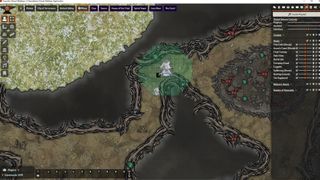
Foundry also has an active community that imports rule systems and templates for many TTRPGs including D&D. There’s also some crossover with D&D Beyond, and as someone who’s heavily invested in that service, Foundry is even more appealing. To use Foundry, you have to buy a license, which is a one-time payment of $50. The best part is that none of your players have to pay to use it.
Price: $50 -- One time for host only.
Foundry Virtual Tabletop - a self-hosted, modern, and developer-friendly roleplaying platform
2. Roll20
Roll20 is arguably the most popular virtual tabletop software out there, and for good reason: it’s relatively easy to use and it’s free (kind of). Like Foundry, it is web-based so you don’t have to download anything (even as the GM). It’s also incredibly customizable and has built-in tools to easily run most TTRPGs. It doesn’t just focus on D&D either; Roll20 has rulesets for all kinds of games, including Pathfinder and Call of Cthulhu.
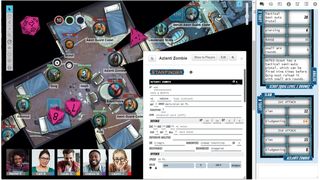
Keep in mind that while Roll20 is free, all of the juicy stuff is locked behind its market. Through its marketplace, you can buy games and art, including maps, tokens, objects and more. If you don’t have a lot of money, Roll20 can be tough to get into if you want to go all-out. There are subscription tiers of $5 per month and $10 per month that give you access to features like larger upload storage and custom character sheets. However, you can easily run an adventure in Roll20 without all of the extra bits.
Price: Free, $50 per year or $100 per year.
3. Tabletop Simulator
I’ve clocked 524 hours into Tabletop Simulator, so I can confidently say that I have experience using it. It can be the most engaging virtual tabletop software and the most annoying in the bunch. Unlike the rest, Tabletop Simulator exists within a 3-dimensional space. It isn’t inherently built to easily work with TTRPGs, so there’s some legwork you have to do and it takes a bit of getting used to.
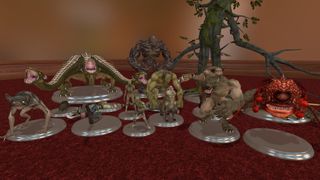
Fortunately, Tabletop Simulator has a very active community, and on top of setting any TTRPG you want, it’s an easy way to play virtually any popular board game. All you have to do is dive into the Steam workshop to look at the mods people have created for the game. It’ll take time to set up a game, but once you do, you can interact with 3D miniatures and even 3D maps. It’s a lot of work, but if you’re committed, Tabletop Simulator can easily be the best virtual tabletop software out there. However, the game does cost $20 and it must be purchased by each player, although you will find the game frequently on sale for $10 so it’s not an expensive investment.
Price: $20 per person
Tabletop Simulator - Create your own original games, import custom assets, automate games with scripting, set up complete RPG dungeons...
4. Astral
Editor's Note: Unfortunately, Astral left active development in October 2021, so while you can still use this service, no further updates will be present.
Astral is like a mash-up of Roll20 and Foundry VTT. It’s still web-based and runs on a similar model to Roll20 -- it’s technically free, but there are subscription tiers as well as a marketplace. One of the unique features of Astral is its dynamic visual FX. It makes your game more engaging than using your average static battlemap. There are even tabs to keep track of initiative and a tab for quick creatures that you can pop -- as a GM, this is ridiculously useful.
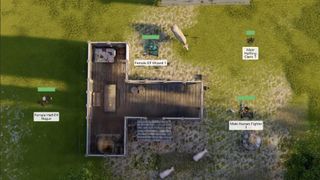
Astral also gives you free access to a number of game systems, including D&D 5e, The Witcher Pen and Paper RPG and Vampire: The Masquerade. Of the virtual tabletop software apps, I found Astral was the easiest to not only set up a game on, but to start creating and run a session. Keep in mind that at the basic tier, you can only upload up to 1GB of content, which can run low quickly if you’re balancing high-res maps and waves of epic soundtracks.
Price: Free
5. Fantasy Grounds
Fantasy Grounds has been around for a long time, and unlike some of the virtual tabletop software on here, you have to download it. Out of all of my testing, I found it the most difficult virtual tabletop software to get into for several reasons. Firstly, absolutely nothing is free. There is a demo version for people to try out, but you can’t play with people unless you know someone who owns the $150 license. Secondly, it looks as old as it is, and for software first developed in 2004, that’s not a good thing.
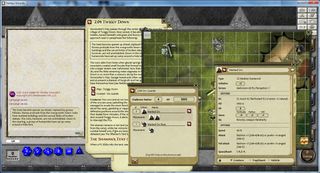
However, it is one of the few virtual tabletop software on this list with purchasable books built within its system. The software itself is still pretty customizable and presents a very retro RPG aesthetic, if that’s what you’re into. I’m not the biggest fan of Fantasy Grounds, but you can create some truly wild things with it.
Price: $40 per person or $150 for host only.
Fantasy Grounds - with intelligent automation making your game easier to prep, more immersive for your players, and faster to run.
6. TaleSpire
TaleSpire is a brand new three-dimensional virtual tabletop software completely built around TTRPGs. It's like if Tabletop Simulator was made specifically for D&D and the genre of roleplaying games. The pros of TaleSpire is that you can be super creative with map building and your players will get the best possible vision of what's happening around them.
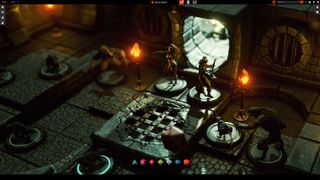
The con of TaleSpire is that all of the players need to own the game in order to play, and since it's a $25 purchase, you're taking a chance. However, the cheapest way to play is if the GM purchases a copy for themself and then stream their screen for their players. Overall, I've had a lot of fun messing around with TaleSpire. I haven't run a session in it yet, but I plan to at some point. Even Dimension 20 has jumped on the TaleSpire bandwagon, with their new show, The Seven.
Price: $25 per person.
7. The RPG Engine
The RPG Engine is a relatively new virtual tabletop that lets you build a freeform 3-dimentional maps that can be exported to 2D. You can sculpt and paint the terrain around the map and fill the world with customizable characters and props. The space on the board seems a little small at first, but if you scale things down, you'll realize that you have more space than you think.
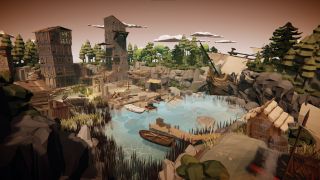
You'll be able to loosely run combat within this virtual tabletop, but there aren't any rules baked in for games like Call of Cthulhu or Dungeons & Dragons 5e. Additionally, map-making in this takes a lot of work, and while some creatives may love the challenge, the GMs that love to scramble at the last minute (aka me) won't find too much use here. However, this tabletop is still in beta, so it's entirely possible that there will be more procedurally generated options included for the GMs on the go.
Price: $20 per person.
The RPG Engine - Build from the ground up with The RPG Engine, an intuitive virtual tabletop that lets you create unparalleled roleplaying environments for your party to get lost in.
8. Role
Role is a clean, stylish virtual tabletop that refocuses the online experience through video chatting. So ideally, you can cut out another app by using Role, so kick that Discord screen to the side for now. This'll put your friend's faces front and center while diving deep into your latest adventure.

Role is in Early Access but it is fully functional and you can even purchase rule sets and adventures, like Avatar Legends by Magpie Games, or its exclusive game Astra by Studio Liminal.
The only thing I don't like about Role is the 5GB limit on Assets that you can upload. I love my music, and that alone would cross over that threshold, not to mention the images, maps, tokens, pdfs, etc. But if you're someone who plays light (asset-wise), then Role might be a great fit for you.
Price: Free
9. One More Multiverse
One More Multiverse is two-dimensional virtual tabletop that revolves around pixelated art to enhance your character tokens, maps, and epic battles. There's over 4,000 art assets you can use to build your world without the need for an outside source. You can even put your own music and assets in as well.
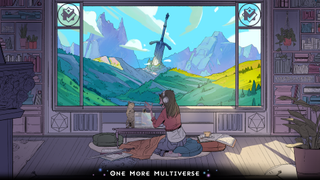
One of the more alluring things about One More Multiverse, aside from the art, is that it has a vibrant community, so there's plenty of additional assets that people have posted on there that you can use. Rarely will you have to make a map or scenario from scratch.
However, One More Multiverse can be a bit clunky -- it's not always responsive when it needs to be, and some of the tools can also get a bit buggy. But if you can get over that, you'll have a great time. Best part is that it doesn't cost you a thing.
Price: Free
One More Multiverse - With powerful tools built alongside our community, One More Multiverse is perfect for first time players and long time Game Masters alike.
Stay in the know with Laptop Mag
Get our in-depth reviews, helpful tips, great deals, and the biggest news stories delivered to your inbox.

Rami Tabari is an Editor for Laptop Mag. He reviews every shape and form of a laptop as well as all sorts of cool tech. You can find him sitting at his desk surrounded by a hoarder's dream of laptops, and when he navigates his way out to civilization, you can catch him watching really bad anime or playing some kind of painfully difficult game. He’s the best at every game and he just doesn’t lose. That’s why you’ll occasionally catch his byline attached to the latest Souls-like challenge.
